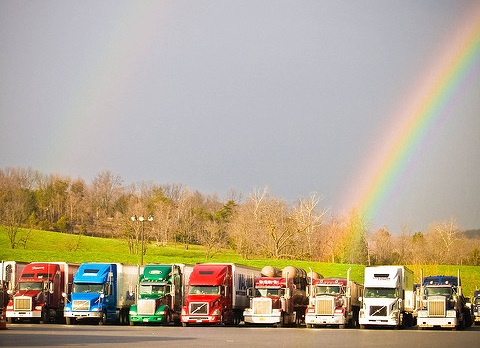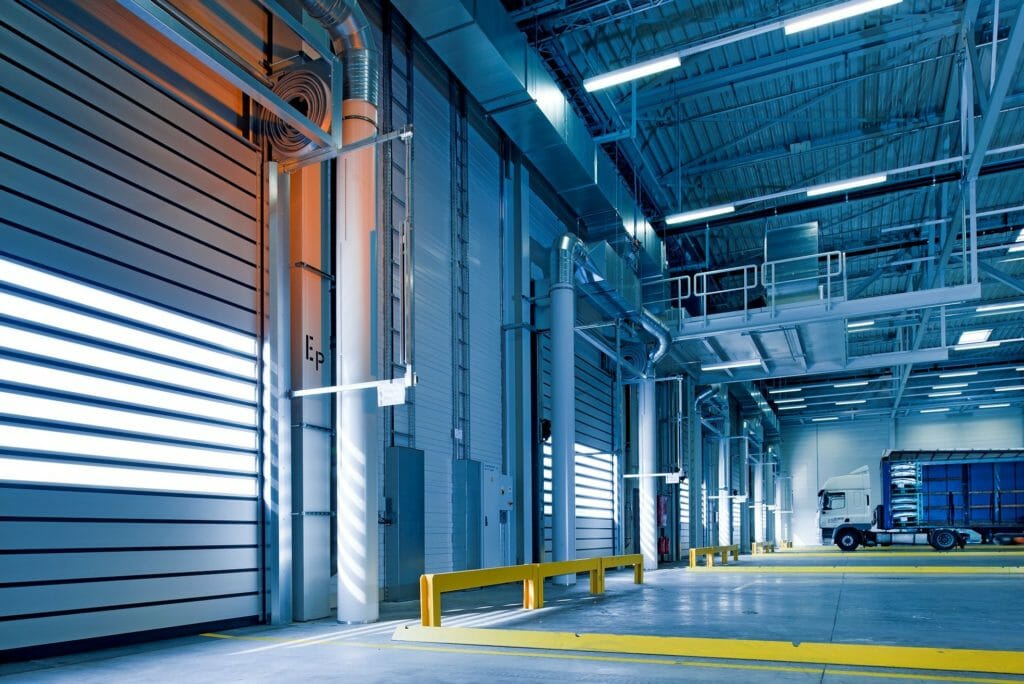
Are There Always Jobs in the Trucking Business?
Over-the-Road Trucking is Always in Demand.
Due to a trucker shortage in the industry, over-the-road (OTR) truck drivers are in high demand. As a result, trucking companies have been willing to raise wages and pay truck drivers more to keep them.

The shortage of over-the-road truckers has many reasons.
Drivers spend many hours on the road. They are alone much of the time. And truckers experience both mental and physical stress when steering heavy freight at high speeds around the nations’ highways and byways. OTR isn’t an easy job.
The fact that truck drivers are always in demand means that those with a Class A CDL will always be able to find work, even during tough economic times.
With a constant flow of new consumer technology, such as endless iterations of smartphones, there’s no shortage of products to deliver. The future of the trucking business is strong.
Local Truck Driver Jobs May Not Always Have Availability.
Even though many local jobs require only a Class B or Class C license, these jobs are more difficult to find. Many competitive job seekers want a position that’s easier, close to home, and requires less hours on the road.
Trucking companies typically want drivers with 2-3 years of long-haul/over-the-road trucking experience before they consider you for a local job.
Truck Driver Job Growth Rates
Trucks handle most of the nations’ freight, nearly 80% of the total volume, equaling over $600 billion. The US Department of Labor projects that employment of delivery truck drivers and driver/sales workers is projected to grow by 4% between now and 2024.

The Dept of Labor also shows that the employment of tractor-trailer truck drivers should grow by 5% during the same time. This is a strong indicator that the future demand of the trucking industry is strong.
The e-Commerce Economy
The widespread and rapid expansion of e-commerce transactions has also increased the demand for over-the-road trucking.
As Americans buy and sell more products online, they increasingly rely on shipments made to their door. No longer do Americans expect to buy everything at their local brick-and-mortar stores.
Companies need drivers to keep the supply chain moving. E-commerce means more truckers in demand.
Related Jobs in the Trucking Industry
There is not much upward mobility in the traditional sense in the trucking business, but there is plenty of lateral movement. Drivers with a Class A CDL still have many options. Experienced drivers may find themselves interested in the following related fields:
- Recruiter
- Supervisor
- Truck Driver Training Instructor
- Dispatcher
- Mechanic
- Courier
- Bus/Taxi/Chauffeur
- Future opportunities taking off in the technological sector. (i.e. Apps and systems that optimize truck driving routes or improve fuel economy)
Being a truck driver, specifically OTR, is a good path to these other jobs.
Is There a Future in the Trucking Industry?
The path to becoming a truck driver is relatively fast compared to other professions. You don’t need a college degree, and in just 3-6 weeks, you can get on the road. But new drivers still want to know if there’s a future in the trucking industry. Our research shows that there is.
Truck Driver Wages
Over the long-term, truck drivers’ wages had been decreasing. Recent years, however, show a reversal. Because of the shortage, the trucking business has been giving its drivers larger raises when compared to other jobs.
From 2015 to October 2016, truckers’ wages increased an average of 7.8%, considerably more than the overall wage growth of 2.8%, according to CNN.
C.R. England in January of 2016 raised wages by 12.4%. Swift saw an 18% increase in salaries and benefits in 2015 compared to the previous year, not only due to its drivers logging more miles, but also “driver wage hikes”. While wage increases can fluctuate and should not be taken for granted, the shortage of truck drivers is helping to keep them coming.
As the driver shortage is expected to escalate to almost 175,000 drivers needed by 2024, the wage increases may very well continue until the shortage is met or an alternative solution is found, such as automated trucks.
Automation
In dealing with the shortage of drivers, automated trucks are always a hot topic. The big question is: Will companies try to move to self-driving trucks?

This is a reasonable question. Google, Uber, Tesla, Apple, and even Samsung have made progress with driverless passenger cars.
Daimler, Embark, and Otto have also been making their own advances in self-driving trucks.
While many consider automated trucks a threat to the traditional driver, truck drivers shouldn’t fear for the future. Automated trucks will require someone to sit in the driver’s seat for a long time to come.
Autonomous trucks have trouble with sharp turns, overtaking slower vehicles, changing lanes, taking exits, parking, dealing with new road, working around construction, and navigating the traffic in cities.
While market-researchers expect to see automated trucks by 2025, truck drivers entering the market shouldn’t worry about their jobs. The current level of available automation on trucks is best compared to the autopilot on commercial aircraft.
Airplanes still need pilots, and trucks will too.
Regulations
Regulations and restrictions placed on drivers continue to be some of the industry’s biggest issues, most notably the Hours of Service restriction. Over-the-road truckers want to push for more miles and more money, and they stress out over service hour regulations. Unfortunately, safety sometimes takes a backseat.
There has been ongoing debate over the HOS rule, and the first revision came in 2013 when the 34-hour weekly restart was redefined. Additionally, electronic logbooks and apps are becoming more popular. This means there are fewer chances to falsify logs and “cheat the book.” This can result in less miles driven.
If drivers make less money with less hours, the responsibility will fall on trucking companies to raise wages to compensate their drivers and improve their route planning with better schedules. In the meanwhile, the Hours of Service rules aren’t going anywhere, and drivers must adapt to these regulations, like any other obstacle faced while on the road.
The Future
The future of the trucking industry is like many other careers. There are future technological innovations that threaten to disrupt how business is done, and there are disputed safety regulations. Overall, the outlook is positive. Wages have been going up, and even automated trucks will require their own “pilots.” Due to the trucking shortage, the jobs are out there.
Should I Be a Truck Driver?
The average salary of a trucker is the first detail to catch the eye of job hunters. For only weeks of training, truck driving provides a good income, but you must be prepared to work long hours to get the miles you want for the highest wages.
Most of all, your personality dictates whether or not you should become a truck driver. This is truer for trucking than other professions.

We’ve created an entire section to find out if you will be successful as a driver.
If living on the road and traveling the country alone sounds like an adventure, then becoming a truck driver might be the best path for you.
Tackling new challenges every day can be a very rewarding experience for problem solvers and can-do personality types.
On the other hand, if you’re claustrophobic and need constant human companionship, then trucking will likely be too isolating for your needs.
The best way to find out what it’s like to live the life of a truck driver is to actually talk to the drivers themselves. Head out to a truck stop and ask some truckers for a few moments of their time. Buy coffee and donuts for a few drivers to sit down with you and discuss their experiences. Five dollars to learn all about your future career may be the best you’ve ever spent.
After you’ve decided that both the pay and your personality are a good fit, then your next step is to get a Commercial Driver’s License (CDL)!
Check out our full guide on “How to Become a Truck Driver.”
